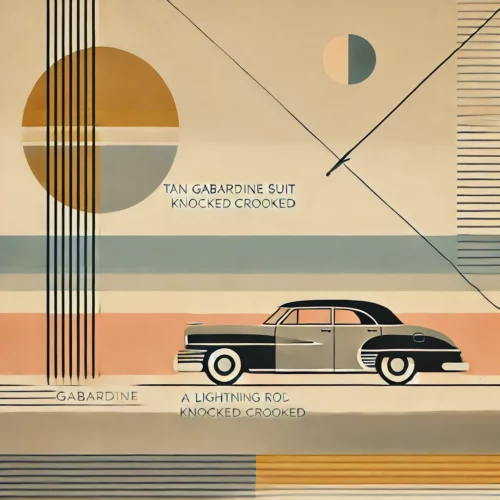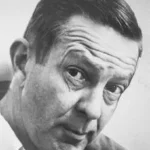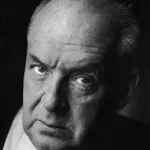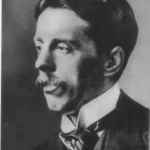John Hoyer Updike (1932 – 2009) was an American novelist, poet, short-story writer, art critic, and literary critic. One of only four writers to win the Pulitzer Prize for Fiction more than once, Updike published more than twenty novels, more than a dozen short-story collections, as well as poetry, art and literary criticism and children’s books during his career.
Exploring the Literary Legacy of John Updike
John Updike, an iconic figure in American literature, has left an indelible mark on the literary world with his keen observations, masterful storytelling, and profound exploration of the human condition. Born on March 18, 1932, in Reading, Pennsylvania, Updike’s prolific career spanned over five decades, during which he produced an impressive array of novels, short stories, poetry, and essays. His work continues to captivate readers with its rich detail, psychological depth, and poignant reflections on American life.
Early Life and Education
Updike’s early life in the small town of Shillington, Pennsylvania, provided the backdrop for much of his fiction. He attended Harvard University, where he was the editor of the Harvard Lampoon, showcasing his talent for wit and satire. After graduating, Updike spent a year at the Ruskin School of Drawing and Fine Art in Oxford, England, before returning to the United States to join the staff of The New Yorker. His association with the magazine lasted throughout his career, and many of his short stories were first published in its pages.
The “Rabbit” Series
Updike is perhaps best known for his “Rabbit” series, which includes “Rabbit, Run” (1960), “Rabbit Redux” (1971), “Rabbit Is Rich” (1981), and “Rabbit at Rest” (1990). These novels chronicle the life of Harry “Rabbit” Angstrom, a former high school basketball star navigating the complexities of adult life. The series offers a panoramic view of American society from the 1950s through the early 1990s, addressing themes such as existential angst, marital strife, and the pursuit of happiness. The final two books in the series earned Updike Pulitzer Prizes for Fiction, cementing his place among the literary greats.
Themes and Style
Updike’s writing is renowned for its descriptive precision and lyrical prose. He had a unique ability to capture the minutiae of everyday life, imbuing ordinary scenes with profound significance. His themes often revolve around the moral dilemmas of suburban existence, the complexities of human relationships, and the search for meaning in a rapidly changing world. Updike’s characters are richly drawn, flawed, and deeply human, reflecting his empathetic understanding of the human psyche.
Other Notable Works
Beyond the “Rabbit” series, Updike authored numerous other acclaimed novels, including “The Witches of Eastwick” (1984), a darkly comedic tale of three women with supernatural powers, and “In the Beauty of the Lilies” (1996), a multi-generational epic exploring faith and doubt in American life. His short story collections, such as “Pigeon Feathers” (1962) and “Museums and Women” (1972), further showcase his versatility and skill in the short form.
Legacy and Impact
John Updike’s literary achievements have earned him a place among the most celebrated American writers of the 20th century. His work has been praised for its stylistic elegance, intellectual depth, and insightful commentary on contemporary life. Updike’s influence extends beyond literature, impacting readers and writers alike with his exploration of universal themes and his masterful command of language.
Updike passed away on January 27, 2009, but his legacy lives on through his extensive body of work. For those seeking to understand the intricacies of American life and the complexities of the human condition, John Updike’s writings offer a rich and rewarding journey.
In celebrating John Updike, we honor a writer whose keen eye for detail, profound empathy, and remarkable storytelling have left an enduring mark on the literary landscape. His works remain a testament to the power of fiction to illuminate the human experience, offering readers both solace and insight in their exploration of life’s many facets.
Short Stories written by John Updike
 My Father’s Tears 2024 - Come to think of it, I saw my father cry only once. It was at the Alton train station, back… ... Read more
My Father’s Tears 2024 - Come to think of it, I saw my father cry only once. It was at the Alton train station, back… ... Read more The Happiest I’ve Been 2024 - NEIL HOVEY CAME FOR ME wearing a good suit. He parked his father’s gray Chrysler on the dirt ramp by… ... Read more
The Happiest I’ve Been 2024 - NEIL HOVEY CAME FOR ME wearing a good suit. He parked his father’s gray Chrysler on the dirt ramp by… ... Read more






